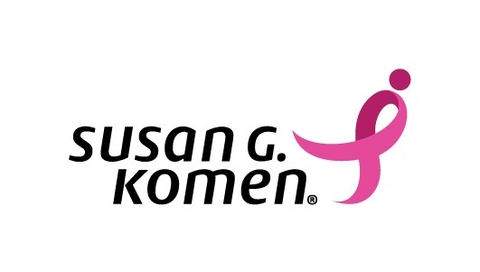Susan G. Komen® Urges All Women to Know Their Breast Cancer Risk and Take Action; New Data Confirms Disease Affects More Young Women
Susan G. Komen® Urges All Women to Know Their Breast Cancer Risk and Take Action; New Data Confirms Disease Affects More Young Women
Breast Cancer Already Leading Cause of Cancer Deaths in Women Ages 20-39
DALLAS--(BUSINESS WIRE)--Susan G. Komen®, the world’s leading breast cancer organization, today responded to new data showing younger women are being diagnosed with breast cancer at higher rates than before.
New statistics from American Cancer Society show a 1% increase in breast cancer diagnoses from 2012 to 2021, and a larger increase of 1.4% of breast cancer in women under 50, than a 0.7% increase in women 50 and older. The statistics also show women in their 20s experienced around a 2.2% increase per year in diagnoses during the decade, and a continued rise in breast cancer incidence among Asian American/Pacific Islander women of all ages.
“This data confirms the need for women of all ages to know their personal breast cancer risk so that they can have informed conversations with their health care providers about the screening plan that’s right for them,” said Victoria Wolodzko Smart, senior vice president of Mission at Susan G. Komen. “Even though the average age at breast cancer diagnosis is 62, breast cancer affects people of all ages. We need to change the conversation around early detection so we’re doing more to find the young women who are at higher risk and ensure they get the care they need, without financial barriers.”
While women under age 40 previously accounted for about 4% of breast cancer cases in the U.S., even a modest rise in breast cancer incidence is a call to action for young women. Women under 40 are more likely to be diagnosed at later stages with more aggressive breast cancers than older women, when there are fewer treatment options available, and treatment can be more intensive and expensive than those diagnosed at earlier stages. For women whose breast cancer presents in less straightforward ways, such as a rash or nipple discharge, rather than a lump, the path to receiving a diagnosis is even more difficult.
Risk is an important component that affects breast cancer screening and influences when screening should start, the appropriate type of breast imaging used and how frequently a person should be screened. Many things can impact someone’s personal risk of breast cancer, including race, a family history of breast cancer, inherited genetic mutations, lifestyle factors and socioeconomic factors.
In particular, young Black women ages 20-29 are 53% more likely to develop breast cancer than white women of the same age group. This is largely due to genetics and social factors that are out of their control.
There are several risk assessment tools, including the Gail model and the Tyrer-Cuzick model, which can help people better understand their personal risk of breast cancer.
Komen urges everyone, regardless of age, to have a conversation with their health care provider about their personal risk and to know what’s normal for their breasts so they can be aware of any changes that should be reported to a health care provider. Komen believes women at average risk of breast cancer should begin screening on an annual basis beginning at age 40, but this may not be appropriate for women at higher risk of breast cancer.
“Many people face barriers to accessing and affording the medical care they require, and Komen is committed to working with state and federal policymakers to remove financial and insurance barriers to breast cancer screening, diagnosis and treatment,” Smart added. “We can save more lives from this disease when breast cancer is caught early, and treatment can begin right away. Insurance coverage should not determine who lives and who doesn’t.”
Anyone struggling with access to care, financial toxicity of breast cancer treatment and navigating the complex health care system can call Komen’s free Breast Care Helpline at 1-877 GO KOMEN to get connected to a patient navigator.
About Susan G. Komen®
Susan G. Komen® is the world’s leading nonprofit breast cancer organization, working to save lives and end breast cancer forever. Komen has an unmatched, comprehensive 360-degree approach to fighting this disease across all fronts and supporting millions of people in the U.S. and in countries worldwide. We advocate for patients, drive research breakthroughs, improve access to high-quality care, offer direct patient support and empower people with trustworthy information. Founded by Nancy G. Brinker, who promised her sister, Susan G. Komen, that she would end the disease that claimed Suzy’s life, Komen remains committed to supporting those affected by breast cancer today, while tirelessly searching for tomorrow’s cures. Visit komen.org or call 1-877 GO KOMEN. Connect with us on social at www.komen.org/contact-us/follow-us/.
Contacts
Amanda DeBard
Susan G. Komen®
(972) 701-2131
adebard@komen.org
